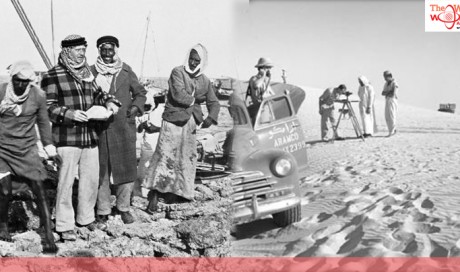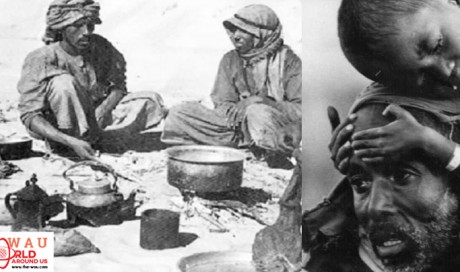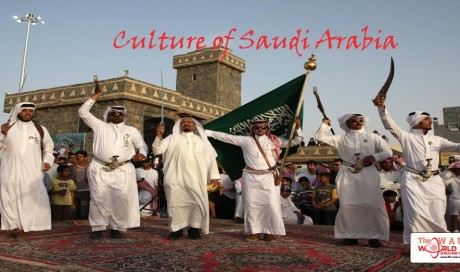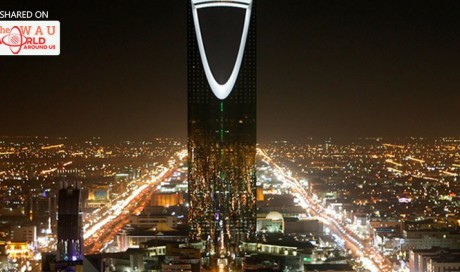Social Stratification
Classes and Castes. A major social division is that between guest workers and local citizens. The working class is largely composed of temporary immigrants, who also occupy middle-class positions and a few positions in the upper class.
Major variations in income and accumulated wealth exist, with the major categories including the super-rich, the very rich, and the rich alongside a large middle-income group and some with limited incomes. Only small pockets of poverty persist. A strong ideology of egalitarianism is traditional among Saudi Arabians, whose social and verbal patterns of interaction stress equality and siblinghood rather than status differentiation. However, degrees of luxury vary greatly. Differences in lifestyle are increasing as wealthy elites interact less commonly with middle-class people. Common attitudes, beliefs, and practices are shared across economic divides, which also are bridged by ties of kinship and religion.
Political Life
Government. Saudi Arabia is a monarchy whose king serves as both head of state and head of government. The Koran is the constitution. Legislation and other regulations are promulgated by royal decree or ministerial decree sanctioned by the king. The monarch appoints cabinet ministers, governors of provinces, senior military officers, and ambassadors. He is also commander in chief of the armed forces and the final court of appeal with the power of pardon. Since the rule of King Abd al-Aziz Al Saud (died 1953), the kings have all come from among King Abd al-Aziz's sons, a provision that has been extended to include his grandsons.
The government also consists of the Royal Divan, which includes the king's private office; advisers for domestic, religious, and international issues; the chief of protocol; and the heads of the office of Bedouin affairs, along with the department of religious research, missionary activities, and guidance and the committees for the propagation of virtue and prevention of vice. The king holds court in the divan, where citizens can make requests or express complaints.
The Council of Ministers is the main executive organ and is composed of the king, the crown prince, several royal ministers of state without portfolio, other ministers of state, the heads of twenty ministries and the national guard, several main provincial governors, and the heads of the monetary agency and the petroleum and mineral organization. The kingdom has a large civil service that began to expand rapidly in the early 1970s and employed an estimated 400,000 persons in the early 1990s. Saudi Arabia has fourteen provinces, each governed by an emir, usually from the royal family, who reports to the minister of the interior.
Leadership and Political Officials. There are no political parties, but the royal family is a large grouping with significant political influence. It consists of about twenty thousand people and has several main branches and clans. Some princes are especially influential in politics, while others are active in business. The ulama also play important leadership roles and consist of members of the Al Sheikh family and several thousand religious scholars, qadis (judges), lawyers, seminary teachers, and imams (prayer leaders) of mosques. Business and merchant families often exert political influence, but there are no labor unions or syndicates for professional groups. Opposition groups exist outside the country. Political upheavals, some of them violent, have taken place, yet the political system has remained relatively stable over decades of rapid economic, social, and demographic change.
Social Problems and Control. Adherence to Islamic values and maintenance of social stability in the context of rapid economic change have been consistent goals of Saudi Arabia's development plans. Religion and society combine to foster significant social control. A powerful deterrent to deviant behavior is that such behavior brings shame to one's family and kin and is considered sinful. Crimes related to alcohol and drugs and to sexual misconduct sometimes are linked to rapid modernization. Theft is rare, and other economic crimes are relatively uncommon, with the exception of smuggling. Assault and murder are limited mainly to segments of tribal communities and usually involve issues of honor and revenge.
The justice system is based on the Sharia , which defines many crimes and specifies punishments. Crimes not specifically identified in the Sharia are defined on the basis of analogy and often are punished by prison sentences. Sharia-prescribed punishments usually have a physical component. An individual arrested on a criminal charge is detained in a police station until a judgment is rendered by a court of first instance presided over by one or more qadis. A court of cassation, or appeals court, also exists, and the king functions as a final court of appeal. A person found not guilty is released. If a physical punishment is prescribed, it is carried out in a public place, usually outside a main mosque on Friday, where the criminal's name and ancestral names are called out loudly for all to hear and where the shame is said to be more painful than the physical blow. Prison sentences, typical for cases involving drugs, are less public. Foreigners convicted of crimes are punished and then deported.
Islam is strict about issues of law and order and rigorous in the use of witnesses. For a man to be convicted of theft, four Muslims must swear a religious oath that they saw the theft take place. Alternatively, an individual may confess. Physical punishment usually is applied only to serious repeat offenders. The state employs the police, supports the qadis and the court system, provides the prisons, and assures that maximum media attention is given to punishments.
Military Activity. Saudi Arabia maintains an army, navy, air force, coast guard, national guard, and frontier guard with a combined total of about two hundred thousand men. These all-volunteer forces have state-of-the-art equipment and a reputation for professionalism.
Nongovernmental Organizations and Other Associations
The giving of alms or a tithe ( zakat ) is one of the five pillars of Islam. This religious obligation sometimes is paid as a tax to Islamic states. Considerable private donations are made to philanthropic societies that address the changing needs of the poor and the handicapped. Other private voluntary organizations deal with community needs, establish sports and cultural clubs, and contribute to development programs that complement state activities. These associations normally are registered with the ministry of social affairs and often receive financial support from the state in addition to contributions from citizens.
Gender Roles and Statuses
Division of Labor by Gender. Strict gender segregation is sanctioned by the state and society. Males and females who are not not barred from marriage by incest rules should not interact in individual or group settings. Women may work outside the home in settings where they do not have contact with unrelated men. Women are employed in girls' schools and the women's sections of universities, social work and development programs for women, banks that cater to female clients, medicine and nursing for women, television and radio programming, and computer and library work. Sections of markets are set aside for women sellers. However, only about 7 percent of Saudi Arabia's formal workforce is female.
The Relative Status of Women and Men. Men have more rights than do women. Women are not allowed to drive; cannot travel abroad without the permission or presence of a male guardian ( mahram ); are dependent on fathers, brothers, or husbands to conduct almost all their private and public business; and have to wear a veil and remain out of public view. However, women can own property in their own names and invest their own money in business deals. Women's status is high in the family, especially in the roles of mothers and sisters. Significant numbers of women have had high levels of success in academia, literary production, business, and other fields, yet their achievements go publicly unremarked and they are barred from most aspects of public life.
Marriage, Family, and Kinship
Marriage. Traditionally, marriage was between paternal first cousins or other patrilineally related kin. It was customary for potential spouses not to meet before the wedding night, and marriages had to be arranged by fathers, mothers, and other relatives. These practices are changing slowly and unevenly, but the tendency is toward fewer close-cousin marriages and for the couple to communicate with each other before the wedding. Parents still arrange marriages but are more likely to manage indirectly and from the background. Men are allowed to have four wives at a time as long as they can treat them equally, but polygyny is uncommon in most of the population. Marriage is considered a necessary part of life, and almost all adults marry. Marriage is usually a costly affair. Divorce is relatively easy for men and difficult for women. Divorce rates are high, and remarriage is common, especially for men.
Domestic Unit. In traditional residence pattern, a bride joined her husband in his father's household. Authority was held by the husband's father, and the new wife was under the control of her mother-in-law. Neolocal residence is now the norm, or at least the ideal, for newly married couples. In these smaller conjugal families, the roles of husbands and wives feature greater equality and more sharing of responsibilities. Authority formally rests with the husband, who also has the religiously sanctioned duty of providing for the needs of his wife and children.
Inheritance. The stipulations of Islam are widely followed in the inheritance of property. Sons inherit twice the share of daughters from their fathers. Provisions exist for a widow to inherit a small portion, but sons are enjoined to support their mothers, especially widowed or divorced mothers. Custom, but not the Sharia, allows immobile property to be inherited intact by male descendants; in such cases, daughters are usually given a "share" of a potential inheritance in money or other items when they marry.
Kin Groups. Kinship is patrilineal, and women continue to remain members of their kin groups after marriage. Among Bedouin and many rural settlers, kin groups identified by ancestral names in larger aggregations include lineages, clans, and tribes and have major social significance. Genealogy is of great interest; although corporate kin groups have largely ceased to exist, many people continue to identify with and take pride in their lineage, clan, and tribal names and descent.
Socialization
Child Rearing and Education. Mothers used to give birth at home, perhaps with the assistance of a midwife. Infants were cared for by their mothers, who carried them everywhere and nursed them. Other women in extended households, including longtime domestic servants, participated actively in rearing children, teaching them Arabian culture and mores. Fathers and uncles and grandfathers did not take part in child care but played with the children, kissed them, and taught them genealogies and morality. They taught them generosity and hospitality by example.
Intense family and kin-based socialization at home is now mainly a memory. Birth takes place at a hospital, and infant boys are circumcised there before going home (girls are not circumcised). A foreign maid or nanny who may speak little or no Arabic often does much of the work of child rearing. This is an issue that troubles many Saudi Arabians. Breast-feeding sometimes is rejected for not being modern. While much visiting goes on among relatives, conjugal family households today do not provide the rich family learning setting of the past.
Boys and girls go to kindergarten and the rest of the educational system. In 1970, the literacy rate was 15 percent for men and 2 percent for women. In 1990, the rate was 73 percent for men and 48 percent for women, and it is even higher now. The increased role of the school in society represents a break with the past, yet there is also continuity. Religious subjects and the Arabic language are strongly represented in curricula but are not always taught in traditional ways. Universities have produced tens of thousands of graduates in a single generation. Half or more of those graduates are women.
Etiquette
Social interaction is marked by strong gender segregation and respect for age differentials. An egalitarian ethos and a high valorization of polite behavior also prevail. Men and women seldom interact across the gender divide outside the domestic space of families, and many of the society's most powerful do's and don'ts aim to regulate such interaction beyond the confines of a home. Thus male-female interaction in a commercial shop should be formal and strictly limited to the process of buying and selling. Generally, men and women should refrain from making specific references to individuals of the other gender, although it is appropriate and common for one to inquire about the well-being of another individual's "family" or "house"—concepts which are understood as circumlocutions for significant others of the opposite gender. Deference should be shown to those who are older, and relations between generations are often characterized by strict formality and the maintenance of decorum in social gatherings.
Most social interaction takes place in groups that are gender- and age-specific. Social visiting within such contexts is very common and occurs on both an everyday basis and for special events. The latter especially include visits to convey condolences for a death or, conversely, to express congratulations for a happy occurrence such as a wedding, a graduation or promotion, or a safe return from a trip. A guest, upon arrival, should greet individually the host and all others present by shaking hands or, if well-known to each other and of similar age, by kissing on the cheeks three or more times. The individual being greeted should stand. The guest must be offered refreshments of coffee and tea. An invitation to lunch or dinner should also be offered by the host. An animated and relatively long exchange of greetings is expected between host and guest and between the guest and others present, as each individual inquires about the other's health and wishes him/her God's protection. The offering of refreshments and the exchange of greetings is extended to office and shop settings (at least among people of the same gender); failure to observe them is very rude. Meanwhile, gender segregation is maintained in public places such as airports or banks, where separate lines for men and women are usual.
People tend to remain in close physical contact during social interaction. Walking arm-in-arm or holding hands and gently slapping or touching a person's outstretched palm while talking is common, especially among people of the same gender who know each other well. Gazing, and especially staring, at strangers is rude. In public, people should avoid direct eye-contact with passers-by. When greeting a stranger or an acquaintance, it is appropriate for the person who arrives first to say, in Arabic, "Peace be upon you," to which the proper reply is, "And upon you peace." When saying goodbye, it is proper to say, in Arabic, "In the custody of God," the reply being "In the custody of the Generous One." Generally, the same patterns of etiquette hold throughout Saudi Arabia. Greater formality, however, prevails among Bedouin and rural people, while more relaxed, informal interaction occurs among younger urbanites. The same patterns, but in attenuated forms, apply between local citizens and immigrants.
Religion
Religious Beliefs. All Saudi Arabian citizens are Muslims. Except for a small minority of Shia, Saudi Arabians are Sunni and mainly follow the Handbali school of Islamic law ( madhab ). Half or more of the immigrants are also Muslims. Non-Muslim faiths are not allowed to practice in Saudi Arabia.
Religious Practitioners. Islam does not have ordained clergy or priests. The person most learned in Islam is the one who leads the prayers. The learned ( ulama ) include judges, preachers, teachers, prayer leaders, and others who have studied Islam.
Rituals and Holy Places. The major everyday rituals are related to the five daily prayers that constitute one of the five pillars of Islam. Those who pray face Mecca, ideally in a mosque or as a group. The haj (pilgrimage) is another of the five pillars and should be performed at least once in one's life. Visits also take place to the mosque and tomb of Muhammad in Medina. The other three pillars of Islam are witnessing that there is no God but God and Muhammad is His Messenger, fasting during the day throughout the month of Ramadan, and the giving of alms.
Death and the Afterlife. The dead are washed, wrapped in seamless shrouds, and buried in graves facing Mecca without coffins or markers. Burial takes place before sunset on the day of death. The dead go to heaven or hell.
Medicine and Health Care
A rich body of traditional medicine previously existed in Saudi Arabia. Physical ailments were treated with the use of herbs and other plants and also by cauterization or burning a specific part of the body with a hot iron. Severe mental health problems were often addressed through special readings of the Koran. Modern Western medicine is now wide-spread and is used by all segments of the society. Public and private hospitals and clinics are established throughout the country, and several specialist hospitals with state-of-the-art medical technologies and practice exist in the major cities. Still, travel abroad to other Arab countries and to Europe and the United States for medical treatment remains common and is supported by the state.
The Arts and Humanities
Literature. The main art form in Saudi Arabia is in the realm of literature. Classical Arabic poetry is highly valued, while a wide range of colloquial poetic forms is popular and are widely used in different social settings. Recitations of poetry are common at weddings and to mark other important public events. The novel has also become popular among both men and women authors. Local publishing houses exist, while authors also have access to publishers in other Arab countries. The state censor of publications, however, plays a powerful role in deciding what can be published.
Graphic Arts. Painting and sculpture are practiced, but a rich variety of folk art in weaving, decorative arts, furniture making, and similar work is of a high quality. The making of jewelry in both traditional and modern styles is also common.
The State of the Physical and Social Sciences
The physical and social sciences are all taught in Saudi Arabian universities, which exist in all the main cities. Medical sciences are especially popular among both women and men students. One university is specifically devoted to study and research relevant to petroleum. Agriculture and agricultural engineering is a specialty at several other universities, while courses and programs in social studies bring anthropology, sociology, and social work to a wide spectrum of students. Psychology is also taught, as are economics and business. Research centers tied to universities, government entities, and to Islamic entities have a significant presence. Meanwhile, Saudi Arabia has a long history of state sponsorship of large numbers of university students and scholars abroad, especially in the United States.
Share This Post











